Septic Tank vs Sewer: How Are They Different? Facts & FAQ
-
Pete Ortiz
- Last updated:

Septic tanks and sewer systems virtually serve the same function—treating wastewater and ensuring that impurities don’t pollute the environment. However, the two differ in various ways. While septic tanks are privately owned and run, sewer systems are public utilities.
Sometimes where you live determines which wastewater disposal system you have. For instance, you have no option but to install a septic tank if you live in a rural area where a municipal sewer is absent. On the other hand, a house in a populated city may already have a connection to the local sewer system.
However, many homeowners today find themselves torn between the two systems as city sewer lines continue extending to new developments. In this article, we explore the advantages and disadvantages of both options to help you make an informed choice.
At a Glance
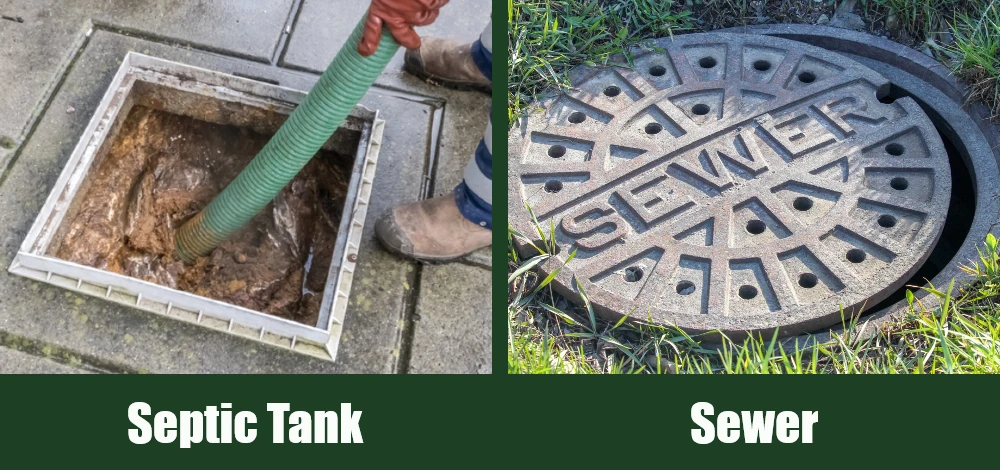
- Run independently
- No monthly bills
- Not affected by community clogs
- Run by local government
- Has monthly bills
- Affected by community clogs
Septic Tank Overview
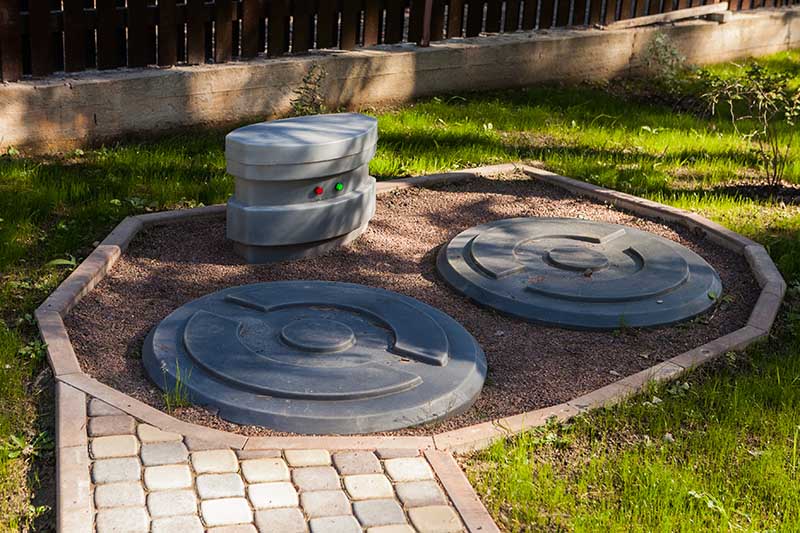
A septic system treats your wastewater on site. It features an underground septic tank with a capacity of 750 to 1,250 gallons, where all the wastewater from your kitchen, shower, laundry room, and toilet drains.
The septic tank contains bacteria that naturally break down the waste, separating it into three distinct layers. The solid waste settles at the bottom, while the clear water occupies the middle layer. Oils, fats, and other similar materials (scum) float on top.
The tank connects to an outlet pipe, which transfers the clear water to a drain field. Here, oxygen and microbes filter it before it drains into the soil.
The sludge and scum accumulate in the tank over time. And you have to hire a technician every three to five years to pump them out.
You should opt for a septic system if you prefer the quiet, serene life of the countryside to the hustle-and-bustle of city life. The choice of a sewer system in a rural area may be nonexistent or too expensive if the municipal sewer line is too far away.
But you don’t need to go as far as moving to the countryside to enjoy the benefits of a septic system.
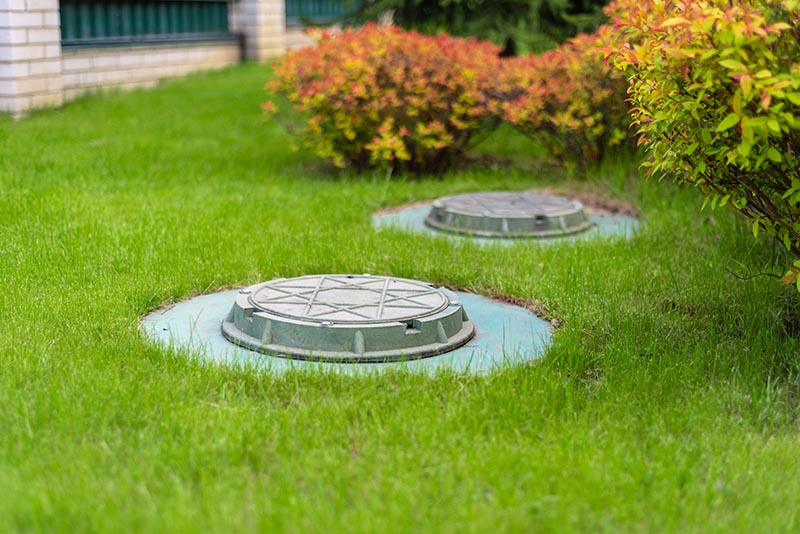
It offers a certain level of freedom and independence in itself. There are no monthly sewage bills to pay, and you won’t be affected by community clogs, overflows, and back-ups.
A septic system is also more favorable to the environment. For one, it requires less infrastructure. It also uses less energy and does not depend on chemicals.
Additionally, installing a septic system is cheaper than connecting your new home to the local sewer line. Sewer bills are also expensive and have been increasing in recent years.
However, that is not to say that there are no additional costs on this other side of the fence. Case in point, maintenance and repair costs fall squarely on you.
Septic tank systems face other challenges as well. One major worry is their susceptibility to clogging. As such, you have to mind what you flush down the drain.
Moreover, a septic system can only handle so much wastewater. Therefore, you may find yourself limiting the activities you can do around the household to prevent an overflow. Things can get worse if visitors come over.
Finally, you need a dedicated space to install a septic system. That means you have to limit certain activities around this area that could interfere with or damage the septic lines. These include driving, building structures, and planting trees.
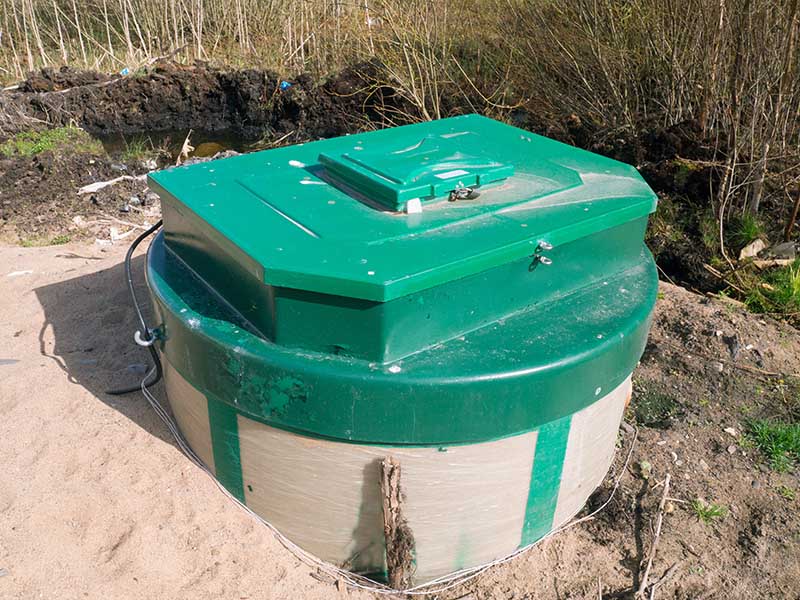
Aerobic vs Anaerobic Septic Systems
All septic systems are not the same. They fall into either of two categories: Aerobic or Anaerobic.
Anaerobic septic systems rely on bacteria to break down the wastewater without oxygen. Many traditional septic systems fall into this category.
They are straightforward to install since they don’t require an aerator or the electrical wiring needed to power it. Moreover, they are easier to maintain because you only need to pump the tank every three to five years.
However, anaerobic systems do not last as long as their counterparts since biomat buildup leads to system failure over time. Most will only serve you for 20 years before you have to replace them.
Bacteria in aerobic septic systems rely on oxygen to break down the waste. Oxygen makes the system more effective, cleaning the wastewater at nearly ten times the rate.
Breaking down most of the waste in the tank leaves less work for the drain field. As a result, aerobic septic systems are kinder to the environment.
One drawback with aerobic systems is that installing them involves more work since they include an aerator, which helps maintain a constant flow of oxygen into the tank. Furthermore, the systems require annual maintenance.
- Offers freedom and independence
- Favorable to the environment
- Cheaper to install
- No monthly bills
- Not affected by community clogs
- Maintenance and repair costs
- More susceptible to clogs
- Cannot handle much wastewater
- Requires a dedicated space
Sewer System Overview
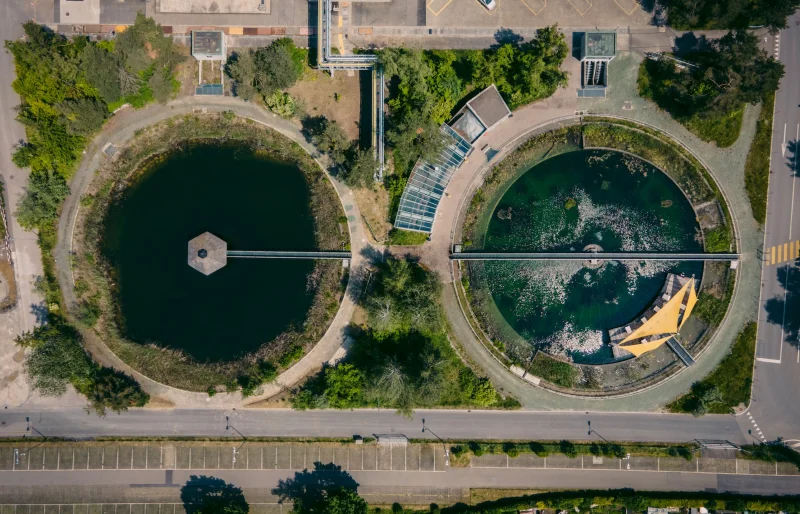
In a sewer system, you are not responsible for treating and disposing of wastewater from your household. Instead, this task falls in the hands of the local government in your city or municipality.
All the gray and black wastewater from individual households in your area drains into the main city sewer line. The city line then carries the waste to a central treatment plant, where they filter and clean it for reuse.
Sewer systems are only present in cities and heavily populated areas. All you have to do is hook up the plumbing line in your property to the sewer line on the street or curb.
One of the most significant advantages of a sewer system is that it is run and maintained by the local government. That means you don’t have to worry about anything as a homeowner, save for paying the monthly sewage bill.
The sewer system is convenient for people who may not have the time, money, or expertise needed to deal with plumbing issues such as clogs. Those who have dealt with the mess and odor caused by a backed-up septic system will appreciate this benefit more.
A sewer system can also handle high amounts of wastewater. Therefore, you don’t have to limit the water you can use daily. You can take as many showers as you like and have as many guests as you like without worrying about overflows.
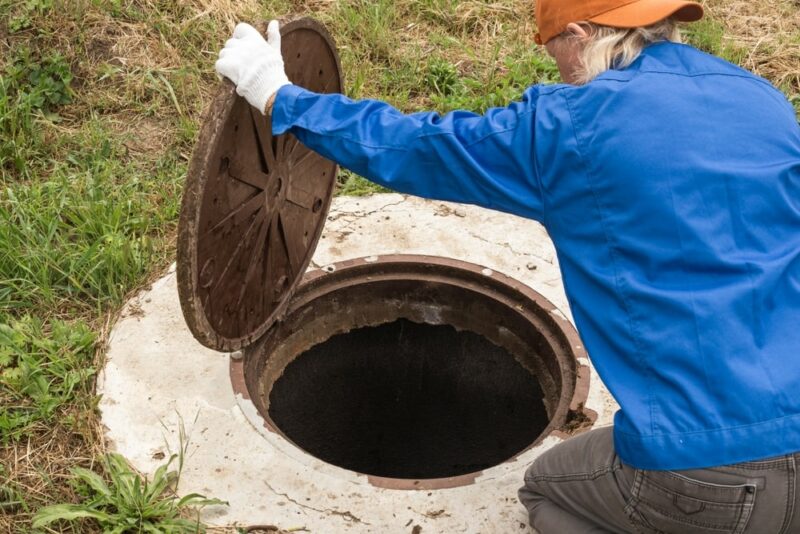
Also, the system’s high capacity makes it harder for storms and flooding to overrun it. A small septic system may crumble under similar conditions.
Although you should still mind what you flush down the drain, a sewer system can handle more abuse. That means it is unlikely to clog because people flush inappropriate items down the toilet.
With that said, clogs occur in all systems regardless of their type. The problem with clogs in sewer systems is that you have no power to limit their occurrence no matter how well you sweep your side of the street.
Cost is another significant disadvantage. For one, the installation cost is usually high. Apart from the cost of installing plumbing lines in your property, you have to pay an additional $500–$20,000 to get hooked to the city sewer line.
The monthly sewage bills are not low either. According to the U.S. Municipal Water & Wastewater Utility Bill Index, the rise in the cost of sewer bills over the last five years outpaces income growth and inflation.
Furthermore, the local government will only pay for repairs on sewer pipes under the street. You have to cover any damage to the sewer pipes on your property.
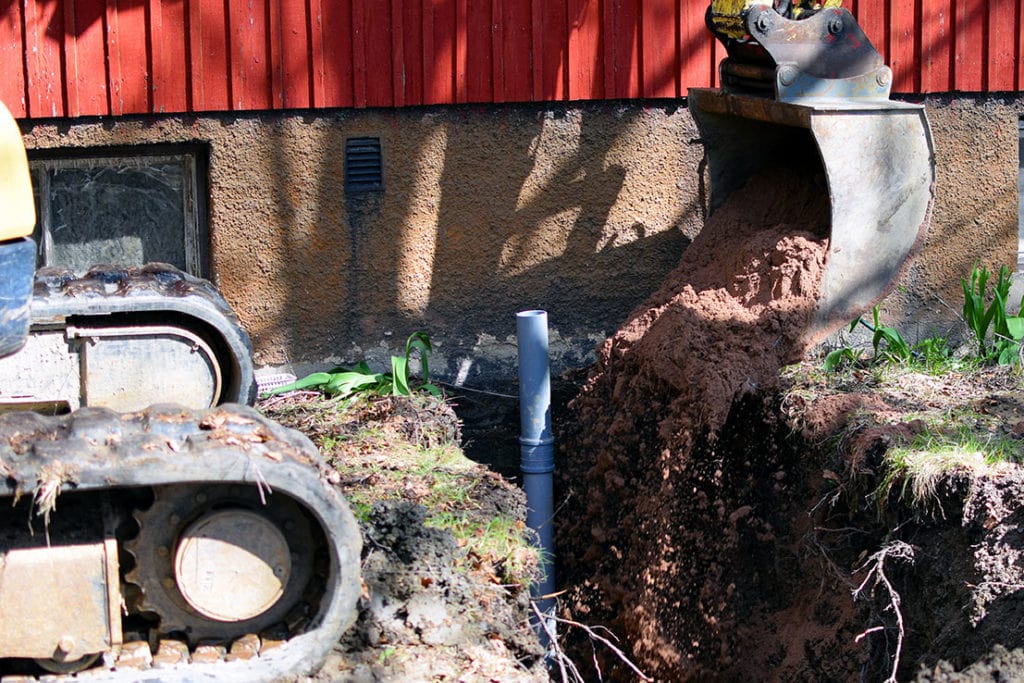
When Should I Switch From Septic to a Sewer System
Sometimes switching to a sewer system is a necessity rather than a choice. For instance, many home buyers prefer homes connected to a sewer system. So, you may have to make the switch if you hope to sell your home.
Some local regulations may also force you to convert. For example, some cities may refuse to give you a permit for an extensive home renovation or pool installation without a sewer connection.
However, there are several prerequisites you need to meet before switching. First, there should be a sewer line available on your street. This may not be possible if you live in a remote area. You also require permits because you must involve the local authorities when digging in areas outside your property.
Remember, septic tanks can pose a significant risk. Therefore, you must follow regulations when abandoning them.
- No maintenance or repair costs
- Can handle heavy use
- Can handle abuse
- Can withstand rain and storms
- Have to pay monthly bills
- High installation costs
- Affected by community clogs
Conclusion
We hope you now understand the difference between septic and sewer systems and their pros and cons. But if you are still undecided, here is a recap:
A septic system offers independence, is kinder to the environment, and is cheaper to install. On the other hand, a sewer demands less involvement from you and can handle heavy usage.
There is no right or wrong option. Ultimately, you should choose the system that is best suited to handle your unique household needs.
- Do You Know the Difference Between Septic Vs Sewer?
- Septic or public sewer: Which is better? | Wastewater
- Sewer vs septic system: which is better for the environment? • Earth.com
- Research Shows Household Water, Sewer Bills Outpace Inflation | Water & Wastes Digest
- Cost To Install A Septic Tank 2023 – Forbes Home
Featured Image Credit: Left – Septic Tank (Hamik, Shutterstock) | Right – Sewer (account_deleted, Pixabay)
Contents




